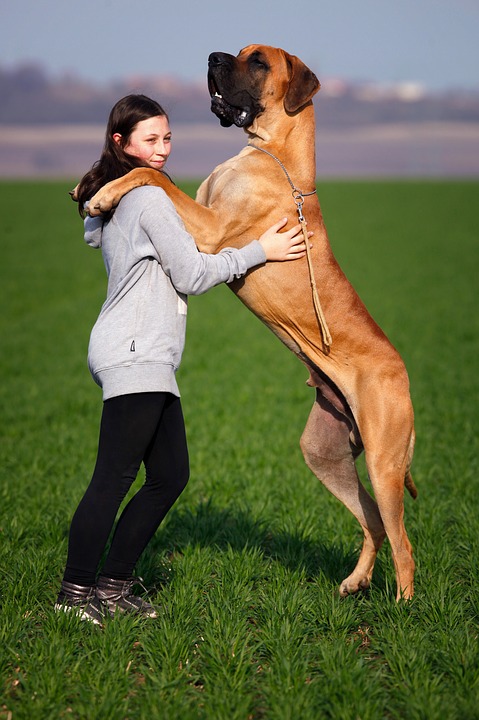 Owning a dog is a lot of fun, but also a lot of responsibility. This is particularly true for owners of big dogs. When you own a big dog, you will impact yourself and your family, but everyone around you in the community as well. You need to think about this carefully, therefore, making sure you are able to set a positive role model of what a responsible dog owner should be like.
Owning a dog is a lot of fun, but also a lot of responsibility. This is particularly true for owners of big dogs. When you own a big dog, you will impact yourself and your family, but everyone around you in the community as well. You need to think about this carefully, therefore, making sure you are able to set a positive role model of what a responsible dog owner should be like.
Pros and Cons of Big Dogs
A lot of people who have had big dogs as children become adults with big dogs as well. At the same time, however, some people aren’t keen on those types of breeds. They don’t like the fact that they smell other dog, show pack behaviors, and leave big messes behind. Others, meanwhile, are simply afraid of these types of dogs because they are so big, or because of cultural or even religious reasons. Furthermore, if someone is afraid of dogs, this tends to be of big dogs rather than small ones.
If you own a big dog, you have to be ready to take on the responsibility for one. It’s important to make sure they are well trained – whether you’re planning on booking daycare for your dog or just to take them to the local park. This does bring a lot of advantages with it, but you have to be ready to accept the disadvantages as well. There are some key advantages that you may not have known as well. For instance, did you know that all big dogs are guard dogs, and that they are on duty 24/7? Even the most kind-natured Labrador is territorial and they will defend their home and humans with all they have got.
Furthermore, if you have an illness, such as epilepsy, a big dog can sense an attack coming and they will warn you about this. In fact, medical assistance dogs are almost always big dogs. Some are even able to learn how to press an alarm button, should their owners be hooked up to it. Naturally, those dogs are trained for this, just as guide dogs for blind people are.
Guide dogs for the blind are dogs that have been specifically trained to act as the eyes and ears of a blind person. They help them to have a higher quality of life by enabling them to go outside and enjoy things that non-visually impaired people can enjoy. They also greatly increase their mobility, enabling them to travel between different locations without any danger of bumping into things, walking into traffic, tripping over things, and so on. As an added benefit, these dogs provide people with companionship and love, breaking them out of isolation.
For people who do not have disabilities, big dogs still have benefits as well. Big dogs are often far more loving in nature than small ones, and they are therefore better in helping people reduce anxiety, stress, isolation, depression, and loneliness. They also make people more active and therefore healthier overall. Of course, this only works if you are a responsible dog owner, in which case you will quickly see that the advantages weigh heavier than the disadvantages.
